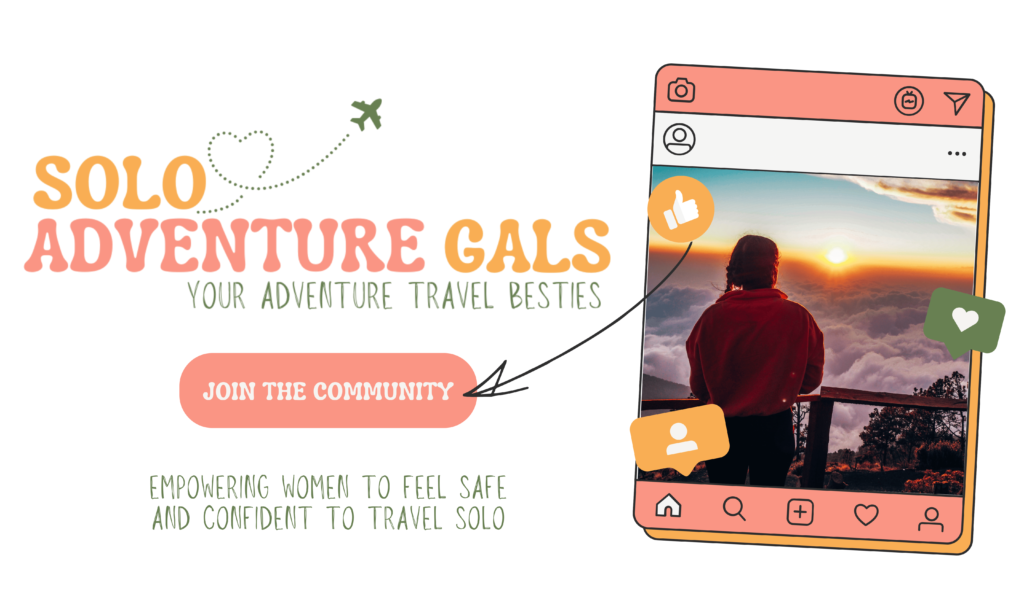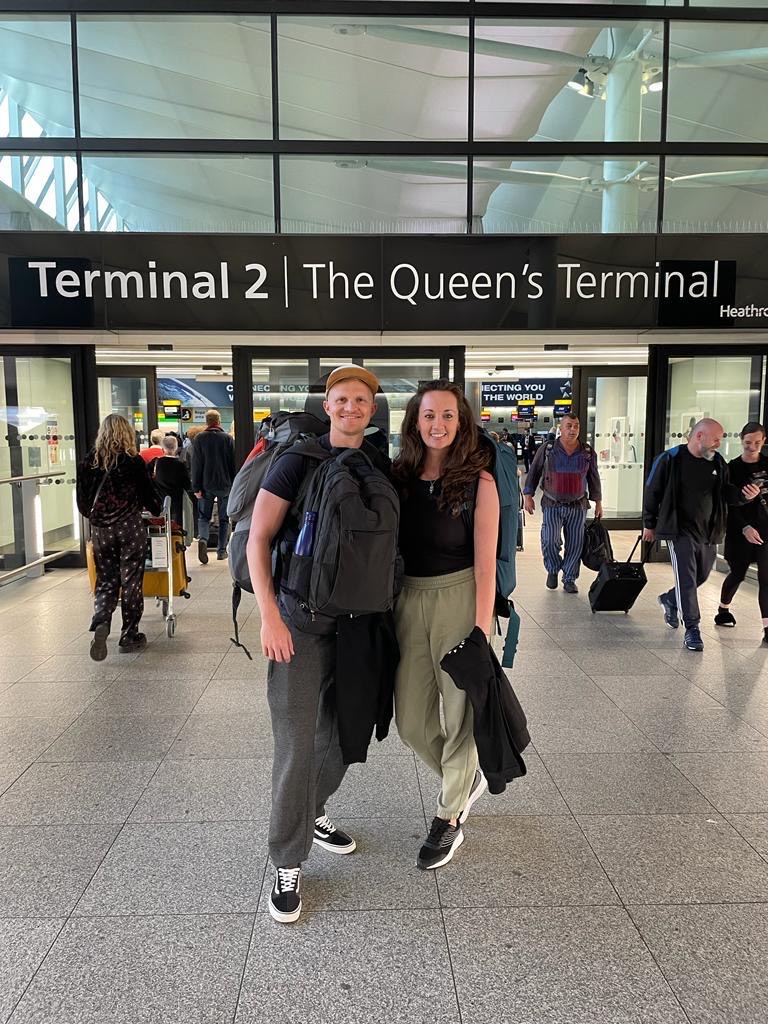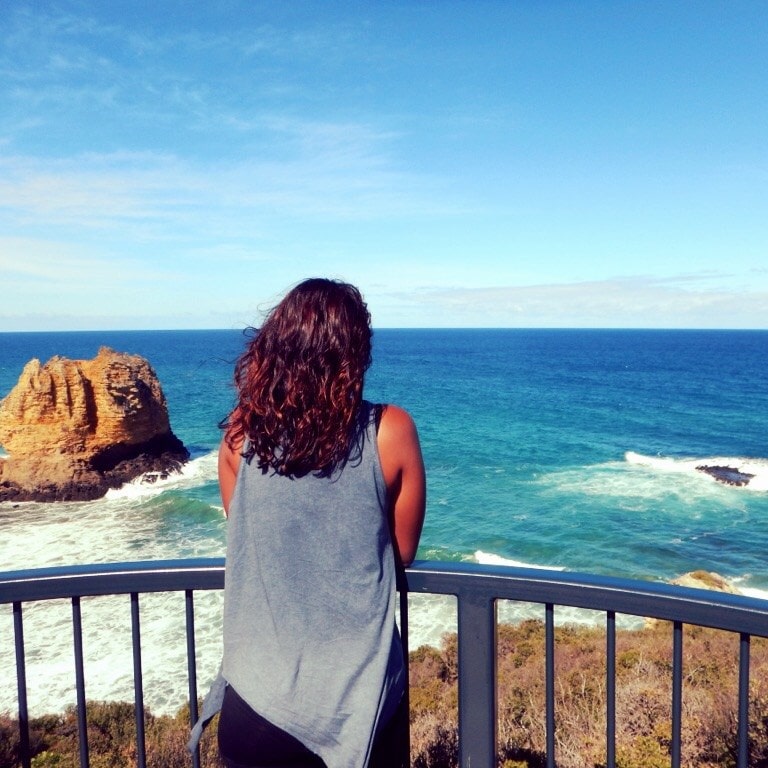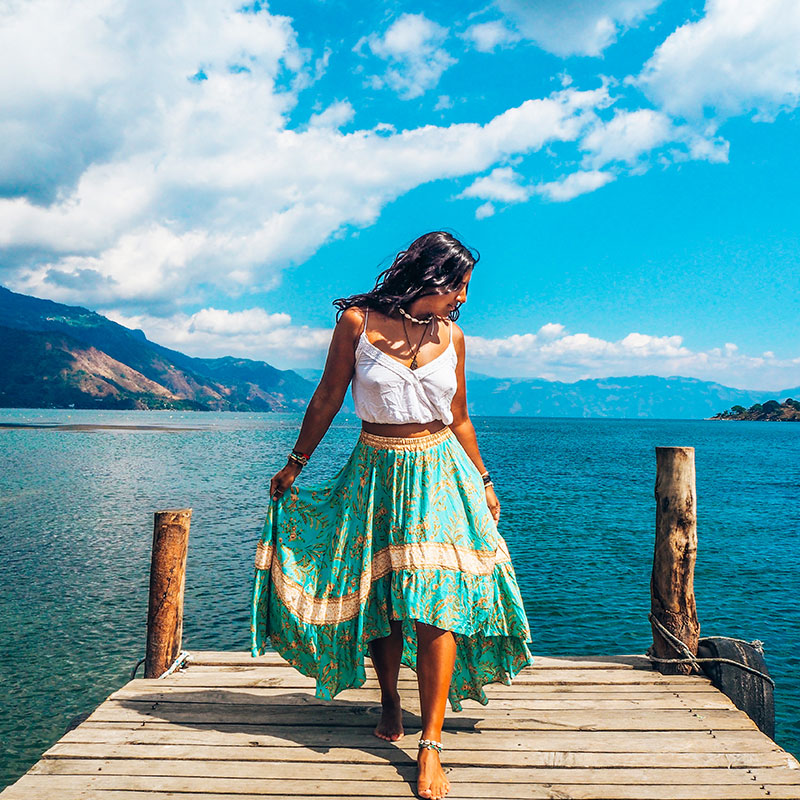I'm Lucy, a solo travel expert from the UK who has spent a decade travelling and working as a digital nomad. I've explored over 50 countries and I'm passionate about combining adventures with slower, more intentional travel that allows us to connect on a deeper level with the communities we visit. In this series, I'll introduce you to digital nomads who have turned to a remote lifestyle for many reasons and from a range of backgrounds to explore an alternative way of living and working online. They'll share insight into what they have gained from this remote lifestyle and the lessons they've learned along the way.
The Essentials for Aspiring Digital Nomads
Before we get into the interview, don't forget to check out these articles if you're thinking of becoming a digital nomad. They're packed with useful tips and actionable advice for making the remote laptop lifestyle your reality.
- 35+ Digital Nomad Jobs to Change Your Life in 2025
- Ultimate Guide To Digital Nomad Visas For UK Citizens
- Becoming a Digital Nomad: 25 Useful Tips
- The Ultimate Guide to Malta's Digital Nomad Visa
- Moving To Malta As A Digital Nomad
If you are considering digital nomad life, you will need a travel insurance policy as your safety net. SafetyWing's Nomad Insurance Essential provides coverage in 175+ countries, and they've recently expanded coverage to include adventure sports and electronics theft too. My favourite thing about the policy, as a digital nomad, is that I can add-on electronic theft insurance for up to $3000 worth of electronic valuables. This is HUGE for someone whose entire life and business is their laptop, camera, phone and tech. They also cover:
- Meals & accommodations if you have a travel delay over 12 hours
- Emergency dental care up to $1000
- Medical care including prescriptions, emergency care and hospital stays
- Coverage for lost checked luggage
- Flights home if something bad happens
- Continued coverage for visits back home
- Coverage for motor accidents
- Coverage for injuries from leisure sports & activities
If you need coverage for a longer period, you might consider looking at their Complete plan - includes all Essential features, plus comprehensive health coverage with routine healthcare, mental health support, and maternity, most countries in the world, including in your home country.
Read my full blog post on Choosing Travel Insurance for Solo Female Travellers
eSIMs for Digital Nomads
My number one safety & productivity hack for digital nomads is getting an eSIM for your phone and I've done the research to find the best one on the market to ensure you are never stuck without connection. If you're keen to save money on eSIMs but don't want to scrimp on your safety – I've got some great discount codes from my friends at Holafly for you to use today!
- Holafly Pre-Paid eSIMs – If you just need a one-off eSIM for an upcoming trip or destination, you are best to choose their pre-paid sims which are available for a few days or weeks or a specific destination. Save 5% with discount code: ABSOLUTELYLUCY >> Download your eSIM now
- Holafly Plans is a brand new monthly eSIM subscription created for global travellers who need seamless, borderless connectivity. These plans are ideal for digital nomads, frequent and long-term travellers! Plans are available in three tiers – 10GB for light data users, 25GB for moderate data users or unlimited. Sound good? Save 10% every month (for 12 months) using my discount code ABSOLUTELYLUCY.
>> Get your Holafly eSIM Plan now!
Read my full blog post on the Best eSIM For Solo Female Travellers To Beat Roaming Charges for more information.
Interview with a Digital Nomad

How to Build a Remote Life as a Digital Nomad
Our special guest for this interview is Han Talbot, who has been working remotely and travelling the world for nearly 12 years. Her journey started when she was studying abroad in Brazil and was looking for different places to write her dissertation – she was even paid to create content about her experience during this time. In 2016, she created Han Meets World, a website now dedicated to content about the remote lifestyle and finding places to work around the world.
Since then, Han has built a career in content creation and personal branding with a focus on travel and tourism. She's created content for long stay and digital nomad tourism campaigns with Costa Del Sol, Experience Dubrovnik and she also worked with Go Türkiye to celebrate the launch of their Digital Nomad Visa. As well as being a Remote Lifestyle Creator, Han is also host of The Remote Life Podcast (a show with a mission to empower people to live their remote life dreams) and Director of The Remote Creatives, a community and online resource.
Han has a unique take on digital nomadism, because while she doesn't really identify as a digital nomad, she is someone who champions remote work and flexible living, so keep that in mind as you read on.
What inspired you to try digital nomadism?
To be honest, there was never one specific moment that inspired me, but it’s something I’ve been aware of and interested in since 2016. Having the flexibility to work from places that empowered me were important long before I graduated, and travel is something I’ve loved since I was a child, so it made sense for me to try it. However I tried everything else first before actually taking the leap - Instagram archives recently reminded me of a time when my work and general interests could take me to 2-3 cities in one week while I was still living in one city full-time.
What's your approach to digital nomad life?
My digital nomad chapter started with a lot of fast travel, and then I tried to balance things a little bit by staying longer in other destinations. I’ve stayed in hostels when I’ve felt like I won’t be ‘at home’ much somewhere, say for an event or project, however I’m now at a point where having my own space is necessary to whatever I’m doing. So I can properly decompress and relax - essentially as I would have done if I had a base of my own.
How do you choose destinations to base yourself when working remotely?
When it comes to choosing destinations, I recommend picking places that resonate with you. Whether it’s culture, language, beach or mountains, it’s got to be somewhere you enjoy spending time - or has been on your wish list for a while if you haven’t been yet. You also don’t have to go far in order to remote work or take a workation and see if this lifestyle is something you’re actually interested in pursuing.
When I had a base, I took my time before opting for the location independent lifestyle. I would go to local London cafes and spaces, work from home or take my laptop with me on a city break somewhere in Europe to test drive whether this was something I actually wanted to pursue. Honestly, London is still one of my favourite places to remote work because there are so many cute cafes, there’s a creative community and always an exhibition or showcase to go and see.
What do you love about being a digital nomad – and what challenges have you faced?
While I love the flexibility that digital nomad life can bring, I would say managing work and life has had its challenges. Adapting to different climates, cultures and timezones, making up for lost time when there has been power outages or slow internet. There are a few more logistics to consider with this lifestyle that might not seem obvious at first (and could probably do with being talked about more). This space has also introduced me to so many amazing people that I would probably have never crossed paths with otherwise, and I’m so grateful for the connections and opportunities this space has given me.

How has digital nomadism changed over time?
Digital nomadism seems a lot more accessible now. I think there are a lot more resources, communities and facilities available since I first heard about it in 2016 and even more so since I started travelling and working full time back in 2021. So many people worked remotely during the pandemic years that companies are now much more aware of what’s possible in allowing people to create their own work set ups.
There are also 60+ digital nomad visas so that people can stay in places longer or access in a completely different way than their passport might have allowed them to previously. I like the idea of these visas, but I wouldn’t say they’re necessarily for ‘digital nomads’ and more for slow travellers and remote workers who are typically looking to stay somewhere for six months plus. In 2025, I am looking to find a remote base in Europe, so fingers crossed.
Is being a digital nomad what you expected?
Truthfully I don’t really remember what, if any, expectations I had in the beginning. But as I mentioned before, it did open a whole world of opportunities and a community of people that I may not have come across without the space, which I think I was looking for more of when I first started out on this chapter. My goals and desires have certainly changed since 2021, but that was helped by being around the digital nomadism world and people who are designing their lives.
How do you cope with loneliness as a digital nomad? How do you find community?
Learning to be alone, even more so when travelling and working full time, is incredibly empowering - and I’m talking alone with our thoughts and company. But it can be incredibly confronting and so having support systems in place is important, whether virtual or in-person. Having an accountability partner at different points over the years has always been game changing for my personal and professional growth. And then looking for different events and meet ups in different destinations has been a great way for me to connect with likeminded people. I also feel grateful to have had the travel creator community to lean on over the years as well, for social and professional time.
What are your top tips for aspiring digital nomads?
Try on the lifestyle before taking the leap - especially if you have never lived abroad before. You don’t have to quit your job and go far in order to work remotely and live your best life. Have a chat with your boss and see if you can take a workation in a city half an hour’s drive away or purchase a workation package for a month somewhere in the same time zone as your current life. While there is a lot of freedom in this lifestyle, there is a lot of admin and discipline needed to make it work and it’s not for everyone. It might be you’re simply craving a vacation and not just a lifestyle change, which is fine too!
How has your vision for The Remote Life Podcast & The Remote Creatives changed over time?
The Remote Life Podcast was a six-episode side project that turned into its own brand and entity, thanks to community feedback. In 2021 I was creating my own content on going fully remote as the lockdowns were beginning to end and I was getting questions in my DMs asking me to talk about things in more depth. Except I felt like there were other people who had amazing stories and more authority than me at the time to speak on these things. And long story short, podcasting felt like the best way to share these stories instead of social media content that could get lost after a couple of hours.
While it started as ’The Remote Worker’ Podcast, I quickly changed the name to The Remote Life when I realised I wanted to talk about all things remote, not just work, and that is still the case today. The mission of the podcast has always been to empower people to live their remote life dreams, no matter how that looks like. Previous guests have had a full-time base and worked remotely, others have been location independent with their families and move location every 3-6 months. It’s always been about designing a life that works for us.
And then The Remote Creatives, is obviously a little more focussed towards creative needs and destinations. It began as a monthly newsletter to share more about building a remote personal brand, and will become a community and resource for remote creatives in 2025.
What do you see for the future of digital nomadism?
In general, I don’t see digital nomadism as a lifestyle going anywhere, and there will likely be more businesses, spaces and legislation (like the Thailand DTV) popping up to accommodate this. On the flip side, I also wouldn’t be surprised if more legislation came into place to regulate, for example, Airbnbs, but this is part of a bigger travel and tourism conversation. For me, I feel like I’m closing my digital nomad chapter as I look for a remote base, however I will continue to be a champion of flexible working and long stay tourism.
Follow Hannah on LinkedIn and Instagram.
>> Catch up on the first interview with Luca Mussari, of Freaking Nomads and Remote Nomad Jobs.















